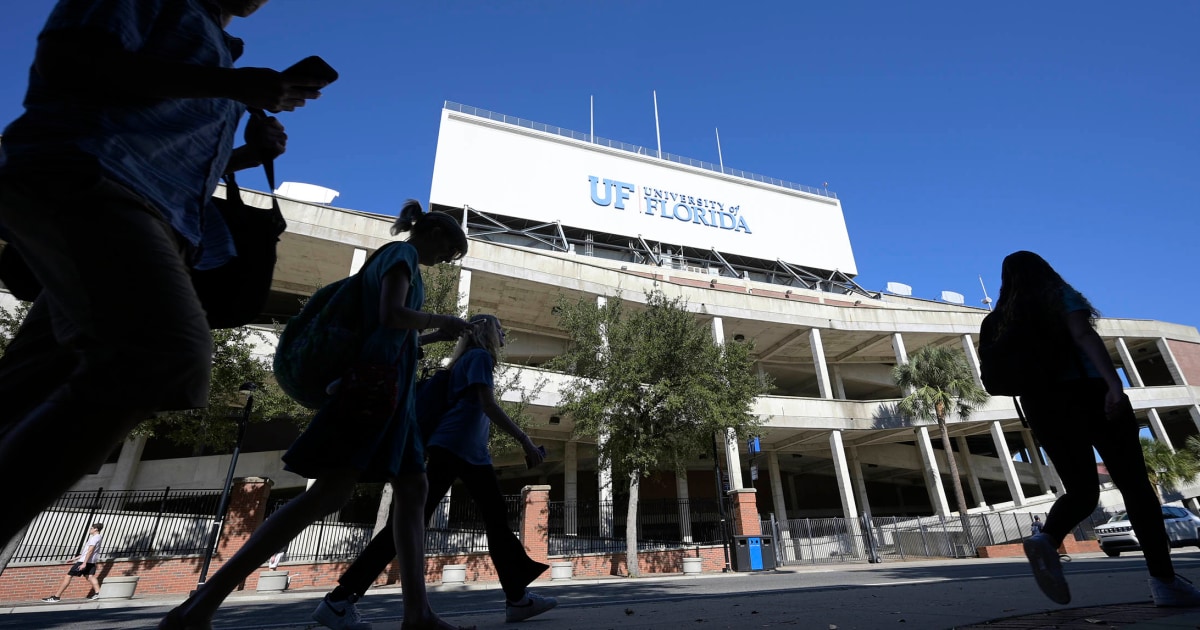- cross-posted to:
- politics
- cross-posted to:
- politics
“Individuals, they cannot decide where they are born. They’re only thinking of their educational opportunities," one professor said.
A Florida law is prompting backlash from professors, students and advocates across university campuses in the state who say the measure could keep Chinese grad students out of their schools.
The measure, State Bill 846, restricts the state’s public universities from hiring graduate students for positions such as researchers and lab assistants, from “countries of concern,” including China, the largest contributor of international students in the state.
While the measure went into effect last July, schools typically issue offer letters in the spring, prompting the recent protests.
While Gov. Ron DeSantis’ has said that the legislation is part of an attempt to counter China’s “malign influence” in the state, critics say it’ll do more harm than good. From taking legal action to participating in rallies this week, students, faculty and others are calling for the measure to be reversed, arguing that the law could pose a threat to the state’s academics and impede scientific advancements and freedoms.
“It’s discriminatory,” Chenglong Li, a professor at the University of Florida College of Pharmacy, told NBC News. “Individuals, they cannot decide where they are born. They’re only thinking of their educational opportunities.
I hate the idea of discriminating on students based on nationality, but out of all the unnecessary attacks on higher education done by the Republicans, this is one I am more ambivalent towards.
Here in Boston, a very significant chunk of the university population (1/4 to 1/3 at some schools) are foreign nationals, most of them Chinese. When they finish their studies, most of them will return home and take their knowledge with them.
The purpose of higher education, at least as I see it, shouldn’t just be profit-driven to make money off of the higher tuition they can charge out of state students. It should be (in theory) to produce highly educated, highly skilled individuals needed for the advancement of society as a whole. But a lot of universities with programs that admit significant numbers of foreign national students are very competitive, and they end up turning away a lot of qualified domestic applicants who would still benefit from that education as a result.
At least for any school partly or wholly operated by the state, the first priority should be to enrich the society funding these schools by educating people who will stay and contribute, with tuition being a lesser motivator.
Now I’d say with Florida’s case in particular, students would be far better served applying to schools out of state given the strict impositions being placed by the highly conservative state government on curriculum, but even partly educated Floridians is better than uneducated Floridians. The state is facing a huge brain drain problem.
I think it would be nice to have some sort of post-graduate work requirement for foreign nationals getting degrees in the U.S.
If they want a degree in, say, engineering, they have to work for an American engineering company (or even one specifically in that state) for a certain amount of time, maybe five years. Sort of an internship, but for pay. That way they still get to bring their expertise back home, but they also contribute to U.S. R&D or just the economy in general.
How would that be contributing to U.S. R&D? Because when you say “American engineering company” that sounds like a private business who wouldn’t be voluntarily giving anything to anyone
Private businesses do lots of R&D and it results in better technology. Would I like all R&D to be government subsidized and public domain? Sure. But that isn’t how the world works.
Keeping them in a domestic company for a while is a greater benefit to the U.S. than it would be if they went back to China and developed that technology,
As for voluntarily giving it, of course they wouldn’t voluntarily give it. That’s an entirely separate issue.
The problem is that those companies CAN’T hire them. Many Indian and Chinese grad students would love to get a job here (many want to go back home, so it’s not 100% one way or the other), but they can’t because of the number of H1-B visas is limited.
The issue is there are limited spots in higher education, and when those students from outside the country come here it takes a spot from a person inside the country. Normally, I’m OK with that (I’m not anti-immigrant or “they’re taking our jobs!!”), but most of those students immediately leave the country once their education is done, taking that knowledge and training with them instead of staying here and contributing to the US. Many of these universities are also state-supported, so my taxes pay for them. Yes, the out-of-country students pay a lot more than in-state people, but they don’t pay more (or not much more) than out-of-state but still US students. My taxes are going towards helping to educate Chinese scientists who are actively working to attack the US. Also, a lot of critical research is done by universities and sponsored by US companies. This knowledge is immediately sent back to China on the cheap, since they aren’t beholden by our IP laws.
That said, it is discriminatory and is open to abuse. I don’t know which countries are on his “countries of concern” list, and I don’t know how easy it is for FL to add a country like Egypt or Ukraine or DRC to it.
deleted by creator





